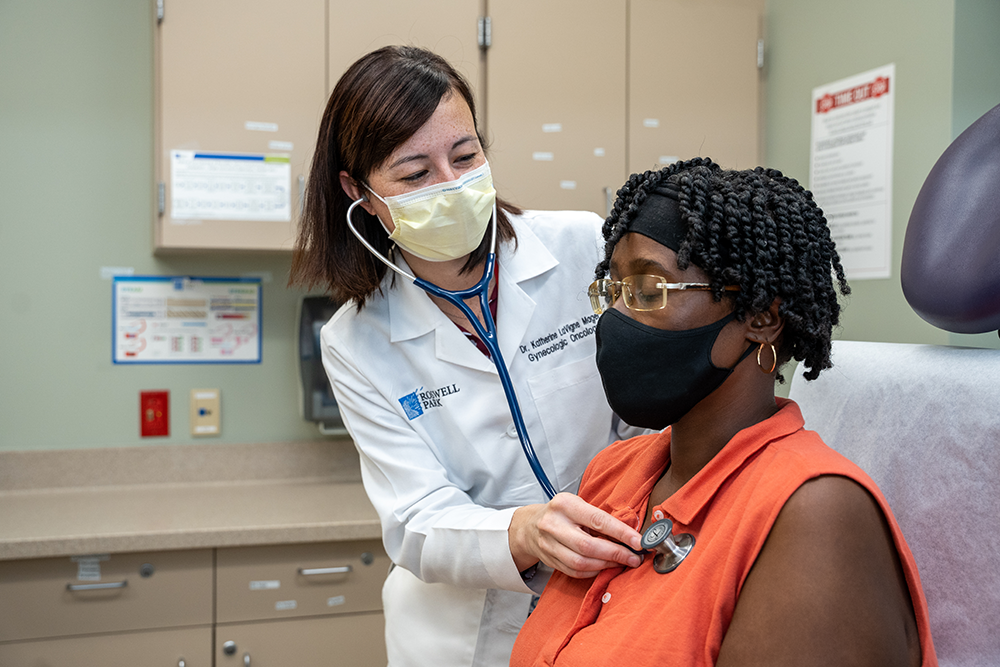We offer the most advanced surveillance, screening, treatment and preventive methods to help you take charge of your health.
This program provides specialized care for women who face increased risk for ovarian, endometrial and other gynecologic cancers.
You may face a higher risk for GYN cancer due to:
You don't need to live in fear — let us help you learn about your options to manage and reduce your cancer risk.
- A personal or family history of cancer of the ovary, fallopian tube, or primary peritoneal cancer
- A personal or family history of hereditary non-polyposis colorectal cancer (Lynch syndrome) in a first- or second-degree relative
- You were diagnosed with breast cancer before age 45
- You have a male relative with breast cancer
- A known BRAC1 or BRCA2 gene mutation in your family
How we can help
Our genetics experts will provide a comprehensive evaluation and assessment of your personal risk for developing cancer, outline your ongoing monitoring and surveillance, and offer you a plan forward. If you are considered at higher risk for a GYN cancer, this specialized program includes:
- Comprehensive risk assessment
- Genetic counseling and testing
- Periodic testing such as blood tests to measure CA-125 levels and transvaginal ultrasound imaging
- Preventive options and treatments to reduce your risk, such as oral contraceptives, surgery to remove the ovaries and fallopian tubes or other strategies
- Connection to fertility preservation options
About the CA-125 test
CA-125 is a substance found on the surface of ovarian cancer cells and on some normal tissues. A high CA-125 level may indicate several potential health concerns, such as cancer of the ovary, breast, lung or pancreas. It may also indicate a benign (not cancerous) condition such as a pelvic infection, uterine fibroids, ovarian cysts or endometriosis.
Unfortunately, measuring CA-125 is not a reliable screening tool for finding early cancers; some patients with known ovarian cancer do not have elevated CA-125 levels. Therefore, while cancer experts may use the CA-125 test as part of a monitoring and surveillance plan for women at high risk for GYN cancers, it’s just one piece of the screening puzzle.
